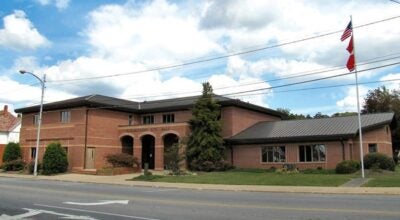Tennessee Senate honors local veteran
Published 8:22 am Monday, April 11, 2016

Star Photo/Abby Morris-Frye
Eugene “Gene” Davis, 90, of Elizabethton was honored with a special proclamation by the Tennessee Senate for his service in one of the most infamous battles of the Korean Conflict. He is shown here with his wife Sarah “Jane” Davis and some of their great-grandchildren, who are proudly displaying a copy of the proclamation.
One Stoney Creek man’s survival of intense combat in weather conditions many people can’t even imagine enduring was recently honored by the Tennessee Senate.
On March 22, the Senate passed a special proclamation honoring Eugene “Gene” Davis, age 90 of Stoney Creek, for his service to country during the Korean War. On Friday, Sen. Rusty Crowe presented a copy of the proclamation to Davis in his home, where the veteran was surrounded by his family.
“One of the things that makes me most proud is our veterans and being able to honor them,”Crowe said. “We are really proud of you Gene.”
“Veterans like you cared more about our liberty and our freedom than they did their own lives,” Crowe added.”
Davis served in the U.S. Army’s 526th Infantry from 1952 until 1954, 15 months of which was spent overseas fighting in Korea.
During his time in Korea, Davis fought in the Battle of Pork Chop Hill. Though the battle took place during what would have been the “Summer” here in the United States, the conditions Davis had to fight in were anything but summer-like.
“Mr. Davis fought in the infamous Battle of Pork Chop Hill, the most intense and most horrific battle of the Korean War, which endured for 19 days in negative 40 degree temperatures,”Crowe said. “They were going through sub-zero temperatures and they continued to fight.”
“As a result of his heroic service in combat, Mr. Davis was disabled by frozen feet and legs, heart disease and very likely post traumatic stress disorder,” Crowe added.
While speaking about Davis’ service, Crowe once again brought up the harsh weather conditions the soldiers faced as they fought in the bitter cold.
“It always puts me in mind of George Washington’s men at Valley Forge,” Crowe said.





